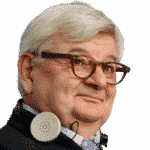Vladimir Putin’s indulgence of his imperial impulses has far-reaching implications for Europe’s place in the world.

What will happen when Russia’s deployment of troops along the Ukrainian border is complete? Will the Russian president, Vladimir Putin, give the order to attack in his effort to deprive one of Russia’s neighbours—a sovereign state and a member of the United Nations and the Council of Europe—of its independence and force it back under the Kremlin’s yoke?
We still don’t know, but the facts overwhelmingly point to an impending war. Should that happen, the consequences for Europe would be profound, calling into question the European order and the principles—renunciation of violence, self-determination, the inviolability of borders and territorial integrity—on which it has been based since the end of the cold war.
Owing to violent aggression on Russia’s part, Europe would once again be divided into two spheres: a ‘Russian Europe’ in the east and the Europe of the European Union and the North Atlantic Treaty Organization in the western and central parts of the continent. Imperial interests would once again be set against those of democracies working together under a common rule of law.
Worse, because words, bonds, commitments and treaties would no longer be trusted, there would be increased rearmament for self-protection and a complete reorganisation of economic relations, particularly in the energy sector. Europe would no longer be able to risk the kind of economic dependencies that allow it to be blackmailed during crises. While a reorganisation of economic relations would be costly for the EU, there would be no other option. The only alternative would be submission and surrender of Europe’s own principles.
Revisionist power
At the heart of the current crisis is the fact that Russia, under Putin, has become a revisionist power. Not only is it no longer interested in maintaining the status quo; it is willing to threaten and even use military force to change the status quo in its favour.
If Europe were to submit to these imperial impulses, it would betray its most fundamental values and would have to renounce the way Europeans live and want to live. It would mean giving up all the progress for which the EU stands. The consequences are unthinkable and thus entirely unacceptable.
Russia’s demands show precisely what is really at issue in the Ukrainian conflict. Putin wants NATO to abandon its open-door policy not only in eastern Europe but also in Scandinavia (vis-à-vis the neutral EU member states Sweden and Finland). This is not about Russia’s supposed encirclement by NATO. It is about the restoration of the Russian empire and Putin’s existential fear of democracy taking root and spreading. At stake in the Ukrainian crisis is the right to self-determination—the prerogative of all sovereign countries to choose their own alliances.
Putin desperately wants to erase the humiliation of the Soviet Union’s demise and Russia’s historic loss of global power. In his view, the Russian empire must rise again and make itself recognised. This aspiration immediately involves Europe, because Russia has never been a global power without first becoming a hegemonic force in Europe. Today, Ukraine’s independence is on the chopping block. Tomorrow, it will be the other post-Soviet states; and, after that, domination of Europe awaits. Europeans who know their history should be all too familiar with this pattern.
Geopolitical rivalry
Given the implications of Putin’s agenda, one wonders what Europe is waiting for. What more needs to happen before Europeans wake up to the facts? If there was ever a time to put aside petty conflicts, it is now. The EU must become a power in its own right if its principles are to survive in a world of renewed great-power politics and geopolitical rivalry. Those principles are being directly threatened. When will it defend them?
To be sure, the importance of the US security guarantee in Europe is obvious under the current circumstances. But if transatlanticism is to endure, Europe itself must become stronger. That will require Germany—first and foremost—to rethink its role. It is and will remain Europe’s largest member state, economically and demographically.
Given the magnitude of today’s threats, is a German domestic dispute about the promise of the former government to spend at least 2 per cent of its gross domestic produt on defence really an issue anymore? Or is it now more important that the German government issue a clear and positive statement about its commitment to the support of Ukraine and defence of European principles? That would send a message that the Kremlin could not misunderstand. But time is running out.
Republication forbidden—copyright Project Syndicate 2022, ‘Ukraine and the future of Europe’
Joschka Fischer was Germany’s foreign minister and vice-chancellor from 1998 to 2005 and a leader in the German Green Party for almost 20 years.

